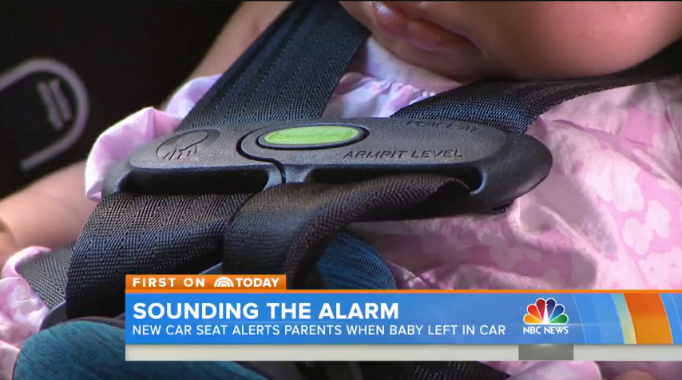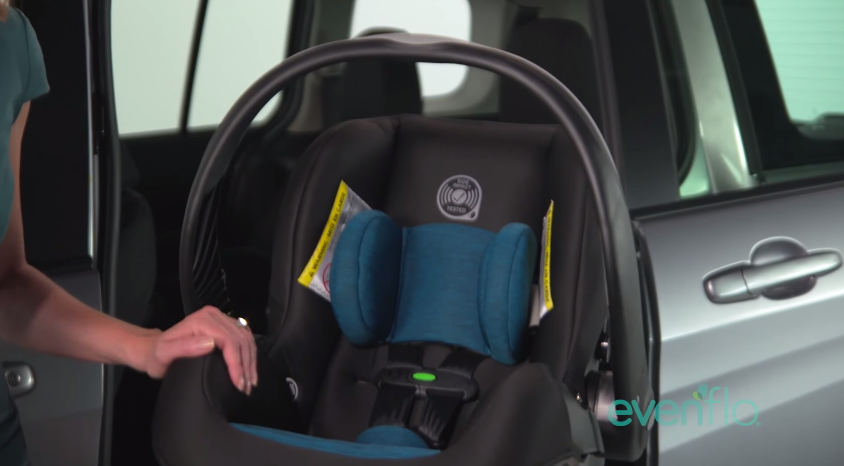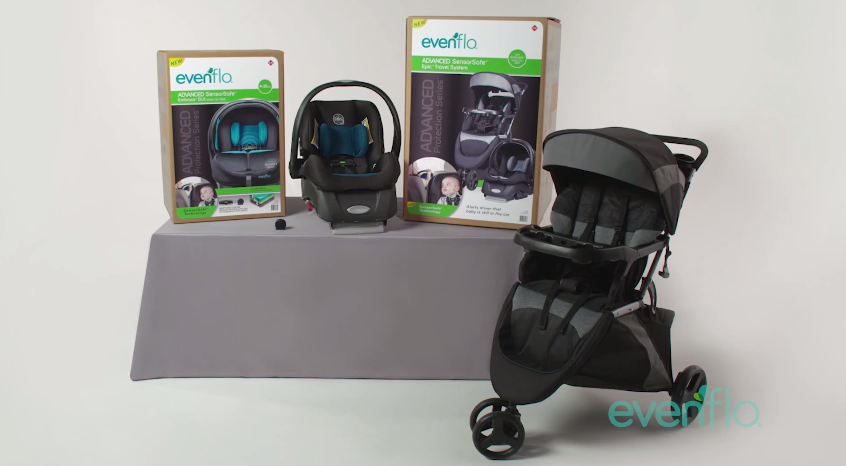Infants getting left in hot cars is an ongoing problem, with an average of 38 children dying in vehicles each year from heat-related deaths, according to child safety non-profit KidsAndCars.org. One company hopes to change that statistic.

Yesterday, Walmart announced they're selling a new kind of car seat from the company Evenflo that sounds an alarm when a child is left behind in the car.
It's called the Evenflo Advanced Embrace DLX Infant Car Seat with SensorSafe technology.

The $150 seat uses WiFi to transmit a signal to the car's data port once the ignition is turned off thanks to a sensor in the harness' chest clip.
If the chest clip is still closed when the car is turned off, the clip makes a noise like a "jingle," Today reported. The alert is designed to make a different noise than one that would come from the car or a phone.
The sound stops once the harness is unclipped, and also will go off if the harness gets unbuckled while the car is in motion.
Unfortunately for those with older cars, the two-piece system only works in models from after 2008.

Children suffer a greater risk when they're in a hot car because their body heats up three to five times faster than adults, according to Parents.com. Their bodies are also less effective at cooling down.
"It seems impossible that you would forget that your baby is in the car, but you're exhausted, the seat's facing the other way, you're sort of going by muscle memory, and you can forget the baby is in the car,'' Wired editor Jason Tanz told Today. "So this is a reminder using Wi-Fi, using a sensor to keep your baby safe."

The thought behind the car seat is that if there are alarms that go off to remind people to use seat belts, there should be alarms to remind parents their child is still buckled inside.
"Our hope is that no one would ever need the SensorSafe system," Sarah McKinney, Walmart's director of corporate communications, told Yahoo, "but the reality is that one child dies [in a hot car] every nine days."

